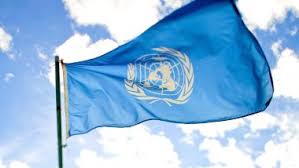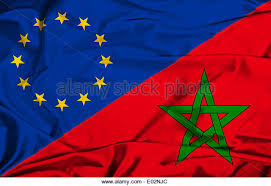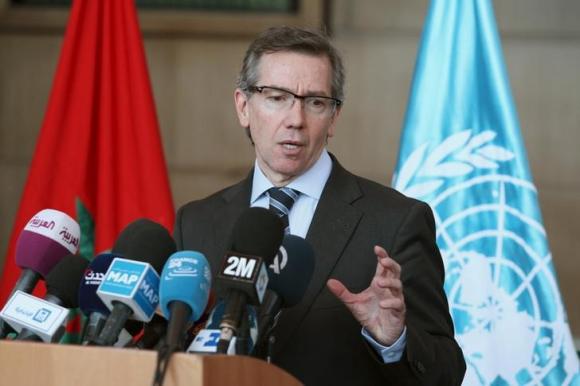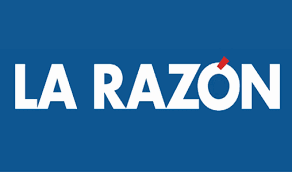 Several member countries of the UN committee 24 have reiterated strong support to Morocco’s autonomy plan offered for a lasting peaceful resolution of the Sahara regional conflict, affirming that the Moroccan offer is the ONLY basis for a just and enduring solution, sustainable peace and prosperity in the region.
Several member countries of the UN committee 24 have reiterated strong support to Morocco’s autonomy plan offered for a lasting peaceful resolution of the Sahara regional conflict, affirming that the Moroccan offer is the ONLY basis for a just and enduring solution, sustainable peace and prosperity in the region.
Addressing the C-24 Caribbean regional seminar organized in Parish of St. John, Dominica, 25-27 Aug, Gbolié Désiré Wulfran Ipo, Deputy Permanent Representative of Côte d’Ivoire to the UN, has voiced his country’s steadfast support to the Moroccan autonomy initiative seeking to reach a “negotiated and mutually acceptable political solution, based on realism” to the dispute over the Sahara.
“My country adheres to this solution which is in line with international law, the resolutions of the Security Council and the General Assembly of the United Nations,” said Amb. Gbolié Désiré.
He also commended Morocco’s new development model set out for the Southern Provinces, hailing the outstanding socio-economic development achieved by this region thanks to its inclusive development and positive contribution of local inhabitants who enjoy freedoms and access to jobs, education, business, and medicare, including jabs against coronavirus.
For her part, the Delegate of Saint Lucia expressed her country’s “full support” to the Moroccan autonomy initiative, saying it is “the only serious and realistic solution” to the regional dispute over the Sahara.
She welcomed the momentum spurred by the two roundtable meetings held in Geneva on the Sahara with the participation of Morocco, Algeria, Mauritania and the “polisario”.
“Saint Lucia supports this roundtable process and joins the Security Council in commending the determination of the four parties to remain committed this process, in a spirit of realism and compromise, to ensure a successful outcome,” added the representative of this Caribbean country.
She also hailed Moroccan Sahara development, the good living conditions enjoyed by Saharan inhabitants who benefit from the region’s resources and from wide access to the vaccination campaign against COVID-19.
Taking the floor, the ambassador of the Republic of Congo also welcomed the Moroccan autonomy initiative which aims at finding an enduring peaceful solution to the Sahara conflict under the UN auspices in line with African Union Summit decision adopted in Nouakchott in 2018.
The diplomat said his country supports a “lasting political and realistic” resolution of this regional dispute, calling on all parties to the conflict to revive the political process in accordance with UN Security resolution 2548 (2020), adopted on 30 October 2020.
Sierra Leone also reaffirmed its support to the Moroccan autonomy initiative as a solution to the regional dispute over the Sahara.
“My delegation supports the Moroccan autonomy initiative which is in line with existing international law, including the devolution of authority to the local population,” Sierra Leone’s Deputy Permanent Representative to the UN, Ambassador Victoria Sulamani, said.
The diplomat recalled that the Security Council, in all its successive resolutions since 2007, including resolution 2548, has welcomed the “serious and credible” efforts of Morocco to advance the process towards a resolution.
The diplomat who welcomed Morocco’s action on human rights, and the role of the National Human Rights Council in the cities of Laayoune and Dakhla, as well as its cooperation with the Office of the High Commissioner for Human Rights (OHCHR) since 2011, emphasized the need “to improve the human rights situation in the Tindouf camps”. She called for a census of the entire population of these camps in accordance with international law, the mandate of the UN High Commissioner for Refugees and the recommendations of the Secretary General and the Security Council.
Sierra Leone welcomed “Morocco’s respect for the ceasefire in the Sahara, as well as the action it took on November 13, 2020 to ensure free movement in the Guerguarat crossing point,” the diplomat said.
Several other countries, including Chile, Syria, Granada, and Indonesia have likewise voiced their support to the political process for the settlement of the regional dispute under the auspices of the United Nations, calling for diplomacy and dialogue as a basis for resolving this issue.
A Moroccan delegation took part in the Caribbean regional seminar. Led by Morocco’s permanent representative to the UN Omar Hilal, the delegation included two elected Saharan officials: Ms. Ghalla Bahiya, Vice President of the Dakhla-Oued Eddahab region and Mr. M’hamed Abba, Vice President of Laayoune-Sakia El Hamra region.
The seminar was an opportunity for the Moroccan delegation to inform the Committee members and other participants about the latest developments of the Sahara issue, expose the role of Algeria in fueling this regional conflict and its plots hatched against Morocco’s territorial integrity.
This C-24 meeting comes following the diplomatic gains scored by Rabat in the Sahara issue, including the U.S. recognition of Morocco’s full sovereignty over its entire Sahara territory and the opening of 25 foreign Consulates in the Saharan cities of Laayoune and Dakhla.
The gathering also comes few months after the peaceful action carried out by Moroccan army to restore and secure the free movement of people and goods in the southern border of Guerguarat zone between Morocco and Mauritania.


